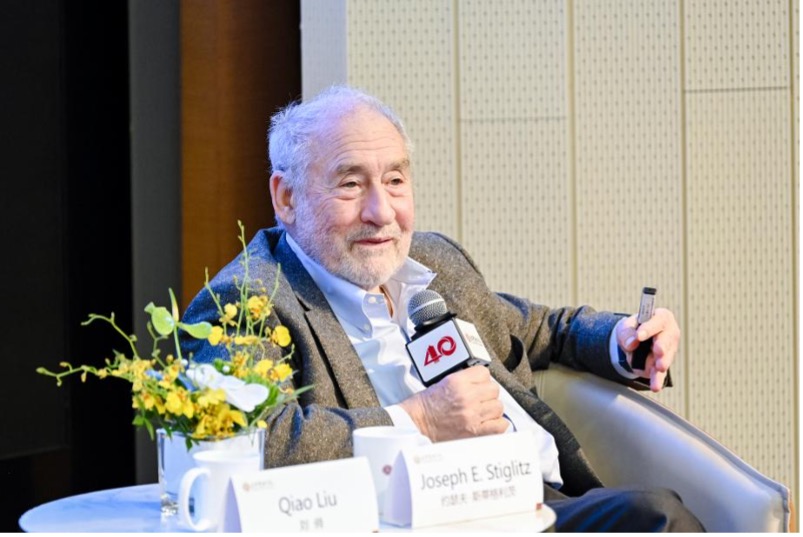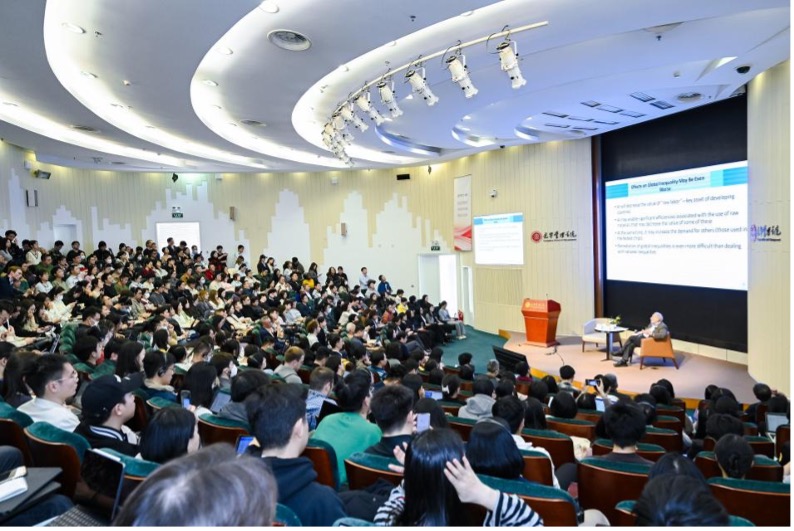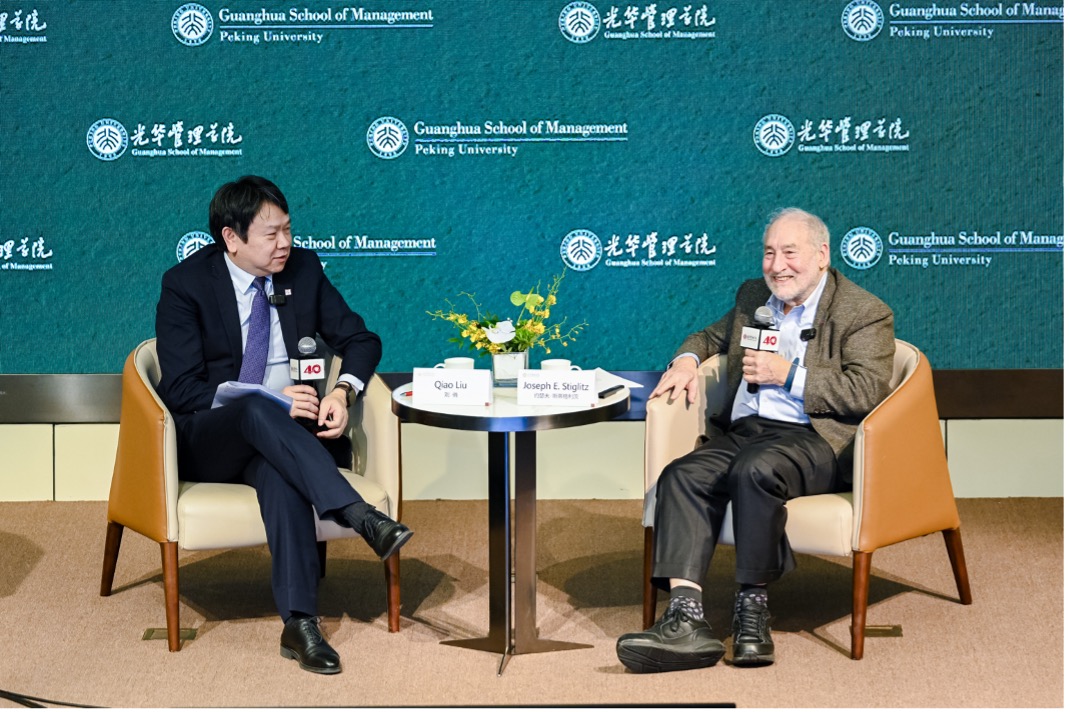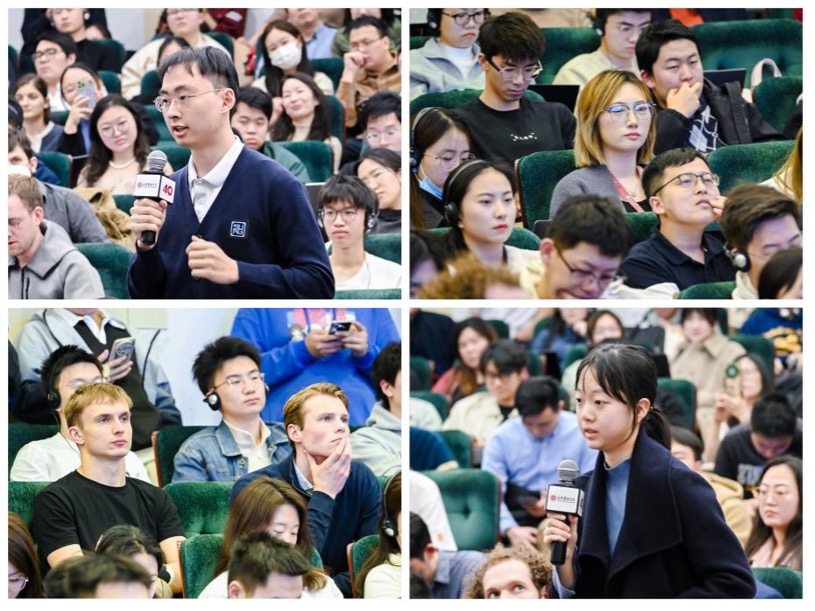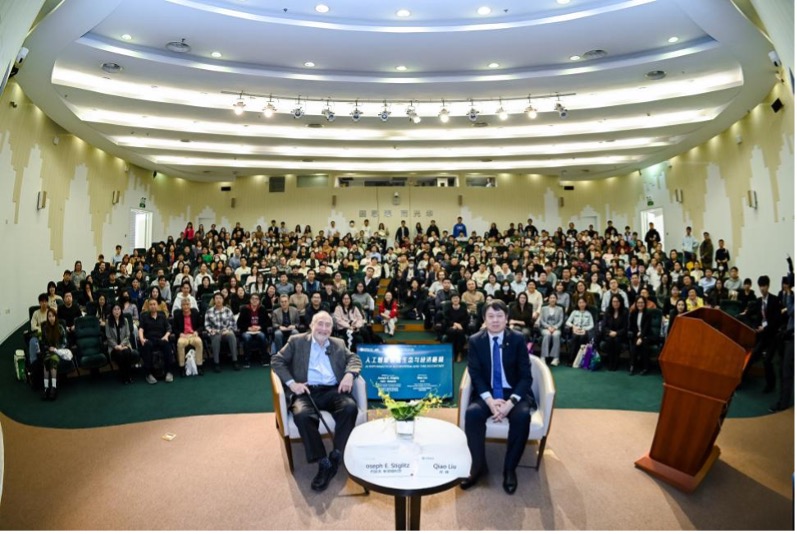Peking University, March 28, 2025: Nobel Laureate and Columbia University Professor Joseph E. Stiglitz spoke at the Guanghua School of Management at Peking University on March 20, 2025, where he discussed artificial intelligence's impact on economic inequality. The event, moderated by Dean Liu Qiao, drew a packed audience to explore AI's transformative potential and associated risks.
Balancing Innovation with Regulation
Professor Stiglitz began by acknowledging AI's potential in medical research and cognitive advancement, while warning of risks from unregulated development. He noted that the rapid AI innovation in the private sector is outpacing necessary public policy safeguards.
"People in Silicon Valley believe that the next two years will be transformative for AI development," said Stiglitz. However, technology companies prioritize profits over social welfare, that's why we need rules and regulations to make sure AI is used to solve important global problems.
Professor Joseph E. Stiglitz
Economic Disparities in the AI Era
Professor Stiglitz highlighted how AI technologies are reshaping global economic landscapes, potentially exacerbating existing inequalities both within and between nations.
-
Labor Market Disruption: While AI can boost worker productivity, it poses a greater risk of job displacement, especially in service sectors. For instance, AI threatens Philippines' call center industry which employs 8% of their workforce. Without proper policies, this could lead to structural unemployment and wider income inequality.
-
Global Economic Imbalance: Global resource dynamics is shifting, reducing demand for traditional developing country exports (e.g., raw labor, basic resources) while increasing dependence on advanced materials (e.g., semiconductor components), primarily benefiting developed economies.
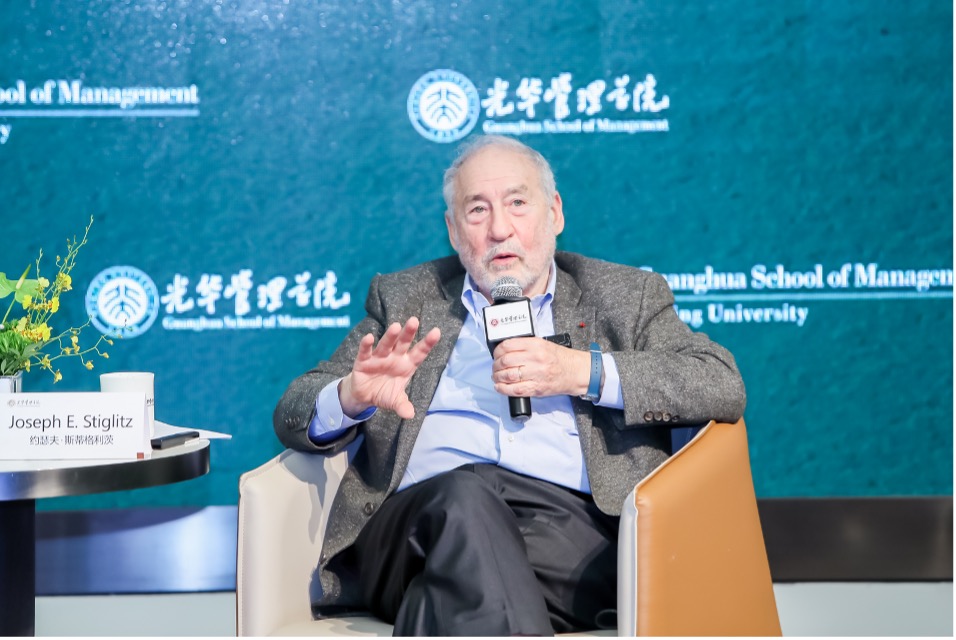
Market forces amplify these inequalities. Large tech companies' control of data creates monopolies, leading to unfair pricing and increased social divides. Their economic power also gives them political influence, allowing them to lobby effectively for tax advantages. He suggested stronger antitrust measures and government oversight, citing the EU's Digital Markets Act (DMA) as an example.
Information Integrity at Risk
Information, as a public good, relies on contributions from private entities and individual creators. He pointed out the current AI models' use of uncompensated data undermines incentives for quality content creation. Additionally, AI's limited ability to verify content accuracy could increase misinformation spread.
Key Challenges of AI in the Information Ecosystem
Two major challenges emerge in the information ecosystem. First, AI training practices threaten quality information production, as exemplified by The New York Times' lawsuit against OpenAI for scraping large amount of valuable content without fair compensation.
Second, AI contributes to information pollution by enabling mass production of low-quality content. Social media platforms exacerbate this issue by prioritizing controversial content for engagement to increase advertising revenue — "engagement through enragement". Without proper oversight, distinguishing quality information becomes more difficult.
Dean Liu Qiao (left), Professor Stiglitz (right)
Call for Regulatory Reform
The current market which led by profit-driven tech companies, are misaligned with broader societal interests. He argued that AI's externalities requires comprehensive policy reforms, including stronger IP protection, fair taxation systems, and enhanced regulatory oversight.
Interaction with audience
In the dialogue and Q&A session, Professor Stiglitz discussed key aspects of AI governance with Dean Liu and the audience. He emphasized AI's unique potential in surpassing human thinking capabilities and advocated for a balanced approach between government platforms and market competition. He stressed that AI should be a global public good, noted that smaller countries can also develop impactful platforms. He also talked about the importance of critical thinking skills in education for evaluating information sources.
Group Photo
This event is part of the Peking University Global Fellowship, organized by the Guanghua School of Management and PKU Office of International Relations, with support from the Peking University Education Foundation.
Source: Guanghua School of Management
